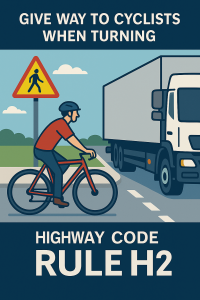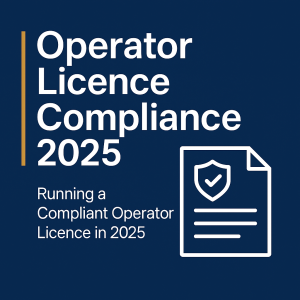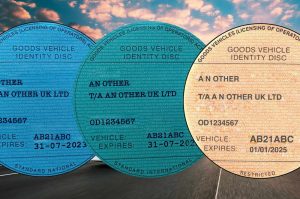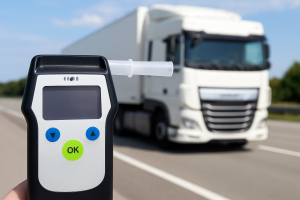Why Walkaround Checks Are a Legal Duty
- They are required by law and enforced by DVSA.
- They count as working time — not “extra” or “unpaid.”
- They prevent accidents by spotting dangerous defects early.
- They protect your licence — missed checks lead to prohibitions and possible action against your vocational entitlement.
👉 As the Traffic Commissioner warns: if drivers fail to carry out proper checks, both the driver and the operator can face enforcement.
What Drivers Must Check Daily
According to the DVSA Guide to Maintaining Roadworthiness, your walkaround must cover every safety-critical system. Work in a consistent routine around the vehicle.
- Tyres & wheels — tread, inflation, damage, wheel nuts.
- Brakes & air system — leaks, low pressure warnings, hoses.
- Lights, reflectors & indicators — clean, working, no cracks.
- Steering, mirrors & glass — clear visibility, no cracks.
- Bodywork & load security — no sharp edges, secure loads.
- Fluid levels & leaks — washer, oil, coolant, fuel.
- Number plates & markings — visible and correct.
Tip: Always record defects immediately, and never drive a vehicle with a safety-critical fault.
The Consequences of Skipping Checks
- Immediate prohibition — DVSA can ground your vehicle roadside.
- Fines & penalties — for both driver and operator.
- Operator licence action — poor checks damage OCRS score and risk Public Inquiry.
- Vocational licence sanctions — repeated neglect can cost you your LGV/PCV entitlement.
- Accidents & liability — if a missed defect causes harm, the consequences are personal.
Common Mistakes Drivers Make
- Rushing the check — a quick glance is not a full inspection.
- Not reporting defects properly — verbal only = no record.
- Driving with known faults — “I’ll sort it later” can cost your job.
- Relying only on apps — digital reporting helps, but you must physically inspect the vehicle.
Protect Yourself and Your Licence
- Follow the same routine daily.
- Use a checklist (paper or app).
- Carry tools: torch, gloves, mirror.
- Take photos of serious issues for evidence.
- Never let time pressure stop you doing the full check.
FAQ: Walkaround Checks
Do drivers have to do a walkaround check every day?
Yes. DVSA requires a full walkaround check before driving every HGV or PSV each day. It’s a legal duty.
How long should a walkaround check take?
There is no set time limit. The check must take as long as necessary to be satisfied that the vehicle is in a safe and roadworthy condition. Rushing is not acceptable.
Does walkaround check time count as working time?
Yes. Time spent completing the daily walkaround check counts as working time and should be planned for within the working day.
What happens if you skip a walkaround check?
You risk roadside prohibition, fines, operator licence action, and possible consequences for your vocational licence.
What should be included in a daily walkaround check?
Check tyres and wheels, brakes and air system, lights and reflectors, steering, mirrors and glass, bodywork and load security, fluid levels/leaks, and number plates/markings. Record any defects immediately and do not drive a vehicle with a safety-critical fault.
Can an app replace the physical inspection?
No. Digital tools can help you record and report defects, but they do not replace the legal requirement for a physical inspection by the driver.
Final Word
The DVSA Guide to Maintaining Roadworthiness and the Traffic Commissioner both say the same thing: walkaround checks are non-negotiable. They protect lives, prevent accidents, and safeguard your licence.
So next time you think of skipping or rushing your check, remember: those few minutes could save your career, your operator’s licence, and someone’s life.
At Transcom National Training, we help drivers and operators stay compliant with Driver CPC, Operator Licence Awareness Training (OLAT), and Transport Manager CPC courses.
👉 Check our latest courses here and keep your licence safe.








